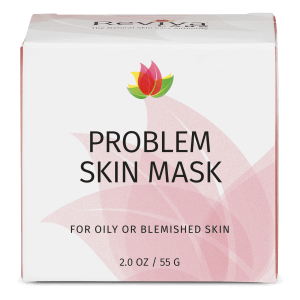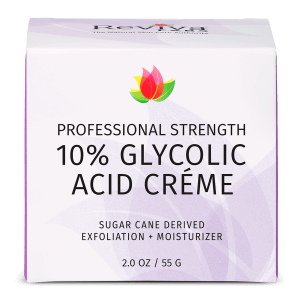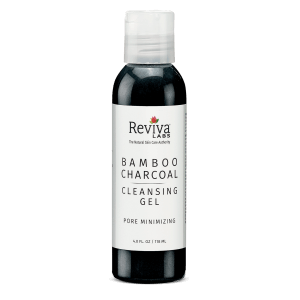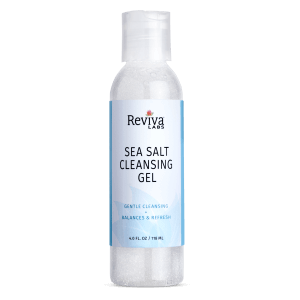Ingredients, Reviva Labs, Skin Care
How to Reduce Acne with Natural Ingredients
Acne is a common skin condition that affects millions of people every day. While there are conventional treatments available, many natural ingredients are just as effective in reducing acne and promoting clearer skin.
What Causes Acne
Acne is a skin condition that occurs when skin follicles become blocked with oil and dead skin cells. Each pore on your skin is connected to a sebaceous gland, which produces sebum, an oily substance. When the body produces extra sebum, it can clog pores, and lead to the growth of bacteria known as Propionibacterium acnes, or P. acnes.
To combat the P. acnes, the body’s white blood cells attack them, which triggers inflammation and the formation of a pimple. Several other factors can contribute to acne, including genetics, poor diet, too much stress, hormone changes, and infections.
The Power of Mother Nature
Fortunately, there are many natural ingredients with anti-inflammatory, antibacterial, or antioxidant properties that can effectively fight breakouts. Look for skin care products that are formulated with one or more of the following:
Salicylic Acid
Salicylic acid, derived naturally from plants like willow bark, is renowned for its anti-inflammatory and antibacterial properties. It’s particularly effective in combating congestion of the skin by unclogging pores and exfoliating dead skin cells. Regular use of skincare products containing salicylic acid can help keep your pores unclogged, providing both immediate improvements and long-term results. However, some skin types may find salicylic acid too strong. In such cases, gentler alternatives like lactic or mandelic acid can be used instead.
Bakuchiol and Zinc Oxide
Hormonal imbalances can often trigger acne. When this happens, it stimulates an overproduction of oil in the skin which leads to breakouts. Hormonal acne usually appears around the lower of the face, including the chin, jawline, and neck. Two ingredients can help this form of acne.
Bakuchiol is a plant-based form of vitamin A, and a natural alternative to retinol. It can decrease the skin’s oil production over time and help heal acne.
While zinc oxide is typically thought of as a sun protection ingredient, it also can speed up the healing process of pimples as well as to reduce oiliness and redness. It’s thought that incorporating zinc-rich foods into your diet, such as oysters, beef, and pumpkin seeds, may also have benefits for acne-prone skin.
Aloe Vera, Azelaic Acid, Niacinamide, and Green Tea
Inflammation plays a crucial role in acne. Ingredients like Aloe Vera, Azelaic Acid, Niacinamide, and Green Tea can significantly reduce inflammation and soothe the skin. Aloe Vera is derived from the plant of the same name and reduces redness and speeds up the healing process of blemishes. Azelaic Acid, found in wheat, rye, or barley, can also reduce redness, improve acne scarring, and restore a healthy skin barrier. Niacinamide, known as Vitamin B3, is a multitasking ingredient that reduces redness, swelling, and improves the appearance of acne. Green tea is rich in antioxidants called polyphenols, which have been shown to fight bacteria and reduce inflammation, two major contributors to acne. It is also known for its ability to regulate oiliness without drying out the skin.
Tea Tree Oil
Tea tree oil, derived from the leaves of the Melaleuca alternifolia tree, is renowned for its antibacterial and anti-inflammatory properties. It has been found to be an effective spot treatment for blemishes, reducing redness, swelling, and acne breakouts.
Turmeric
Turmeric has long been used to treat a variety of skin conditions, including acne. Its anti-inflammatory, antimicrobial, and antioxidant properties have been shown to lessen the severity of acne and to reduce redness.
Lifestyle Changes for Clearer Skin
In addition to using natural ingredients, making certain lifestyle changes can go a long way to reducing acne flare-ups:
- Maintaining a healthy diet: While diet alone may not directly cause acne, certain foods, such as those high in dairy and that have a high glycemic count, have been linked to acne breakouts. Incorporating a balanced diet rich in fruits, vegetables, lean proteins, and whole grains may help improve your skin health.
- Avoiding touching or picking at your skin: Picking at acne sores can introduce more bacteria into the skin, leading to further infection and potential scarring. It’s important to resist the temptation to touch or squeeze pimples and allow them to heal naturally.
- Managing stress: Stress can contribute to acne breakouts. Incorporating stress-reducing activities into your daily routine, such as exercise, meditation, or spending time in nature, can help improve your overall well-being and potentially reduce acne flare-ups.
- Keeping the skin clean: Regularly cleansing the skin with a mild cleanser can help remove excess oil, dirt, and bacteria that can contribute to acne. However, it’s important not to over wash or scrub the skin too harshly, as this can strip away natural oils and exacerbate acne.
So maybe it’s time to get back to nature and incorporate skin care products with some of the earth’s best natural ingredients.












